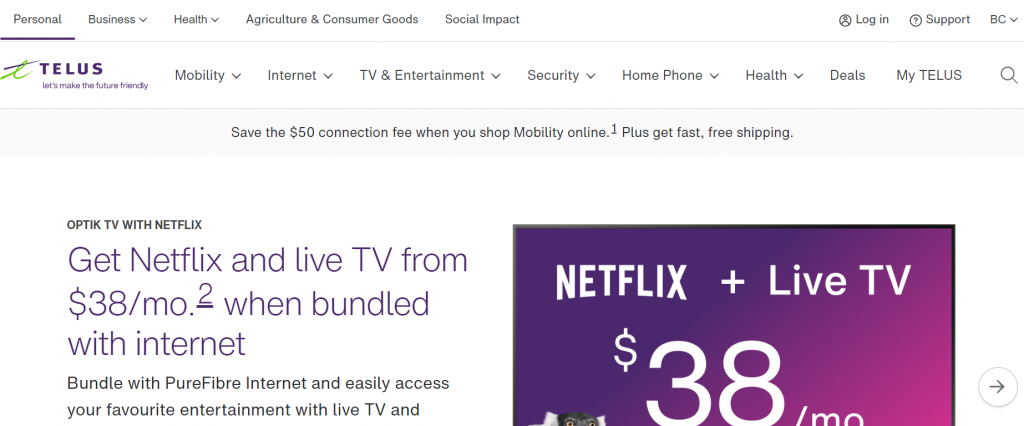
Introduction
Are you tired of slow internet speeds and frequent disconnections? Do you find yourself wondering if the grass is greener on the other side with a different Internet Service Provider (ISP)? Before making any hasty decisions, it’s essential to uncover some common misconceptions about ISPs. In this blog post, we’ll explore the truth behind these myths and provide you with valuable insights into choosing the right ISP for your needs. So sit tight, grab a cup of coffee, and let’s dive in!
The Truth about Internet Service Providers
When it comes to internet service providers (ISPs), there are a lot of misconceptions floating around out there. Many people believe that all ISPs are the same, or that they can’t do much to improve their internet speeds and reliability. However, the truth is actually quite different.
Firstly, not all ISPs are created equal. Some offer faster speeds than others, while some may have more reliable connections in certain areas. Additionally, many ISPs offer different types of plans based on individual needs and preferences.
Another thing to keep in mind is that your home network setup can also impact your internet experience. Factors such as router placement and interference from other devices can affect your speed and reliability.
It’s important to note that you don’t have to settle for subpar internet service if you’re unhappy with your current provider. Researching available options and comparing plans from multiple ISPs can be an effective way to find a better fit for your needs.
The Different Types of Internet Service Providers

When it comes to choosing an internet service provider, there are several options available. Each type of ISP has its own advantages and disadvantages, so it’s important to choose the one that best fits your needs.
The first type of ISP is cable internet. This service is provided through coaxial cables that also deliver TV signals. Cable internet offers fast download speeds but can suffer from slow upload speeds during peak hours.
Another option is DSL internet, which uses existing telephone lines to provide a connection. While DSL may be slower than cable, it tends to be more widely available in rural areas where other types of connections may not be possible.
Fiber optic internet is becoming increasingly popular as well. This type of connection uses fiber-optic cables made up of thin strands of glass or plastic fibers that transmit data at incredibly high speeds. However, this option can be expensive and may not yet be easily accessible in all areas.
The Pros and Cons of Each Type of Internet Service Provider
There are different types of Internet Service Providers (ISPs) available, and each comes with its pros and cons. It is important to be aware of these differences so that you can choose the one that best suits your needs.
Cable ISPs provide high-speed internet through cable lines in your home. They offer faster download speeds than DSL, but their upload speeds may not match up. The downside to cable ISPs is that when many users in your area use it simultaneously, there can be a slowdown.
DSL ISPs use telephone lines for providing internet services. These are usually slower than cable connections but work well in rural areas where cable service isn’t available yet.
Satellite ISPs require a satellite dish installed on the roof or outside wall of your house. This option provides access even if you’re located far from cities or towns where cables reach out. However, weather conditions can affect signal quality which limits connection speed.
Fiber Optic networks have become increasingly popular around the world as they deliver fast connectivity with very low latency rates between data centers and customers’ homes/offices using light signals over fiber optic cables.
Which Internet Service Provider is the Best?
When it comes to choosing the best internet service provider, there isn’t a one-size-fits-all answer. It ultimately depends on your individual needs and preferences.
For those who prioritize speed and reliability above all else, a fiber optic connection is likely the best choice. While typically more expensive than other options, fiber offers some of the fastest speeds available with minimal latency or downtime.
However, if you’re looking for a more affordable option that still provides decent download and upload speeds, cable internet may be a good fit for you. This type of connection uses coaxial cables to transmit data and can provide solid performance at reasonable prices.
For those in rural areas or places without widespread access to traditional broadband connections, satellite may be the only viable option. While this type of internet has come a long way in recent years, it’s still generally slower and less reliable than its wired counterparts due to issues like weather interference.
Ultimately, when choosing an ISP it’s important to consider factors such as location, budget, desired speeds/latency levels and any additional services or perks offered by different providers before making your final decision.
Get Best Internet Service With Telus

To sum it up, choosing the right Internet Service Provider for your needs can be a daunting task with all the misconceptions out there. However, understanding the truth about these providers and their different types is a great first step towards making an informed decision.
When it comes to selecting an ISP, there is no one-size-fits-all solution. Each type of provider has its pros and cons that should be considered before making a decision. Some may prioritize speed while others put more emphasis on reliability or cost-effectiveness.
If you’re looking for reliable internet service with fast speeds at affordable prices, Telus may just be the perfect fit for you. With their fibre-optic network technology that delivers consistent speeds even during peak hours and exceptional customer service support available 24/7, they are definitely worth considering when searching for an ISP in Canada.
So don’t let common misconceptions cloud your judgement when selecting an Internet Service Provider – do your research well beforehand and make sure to choose a provider that meets all of your specific connectivity requirements!





